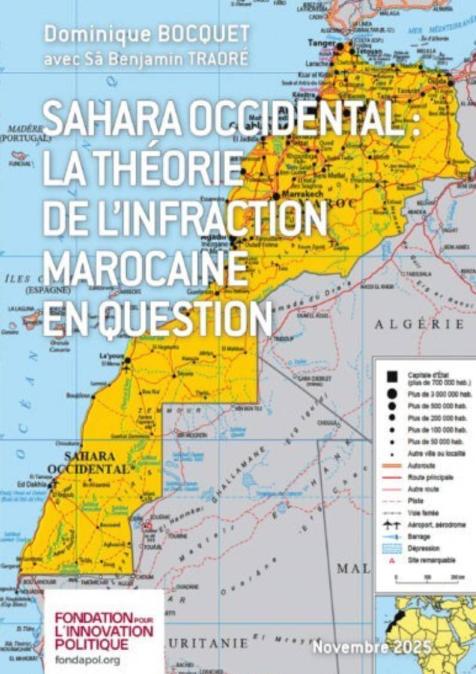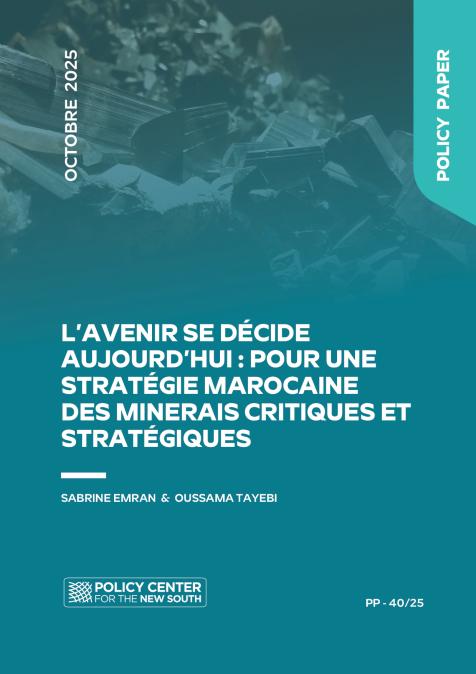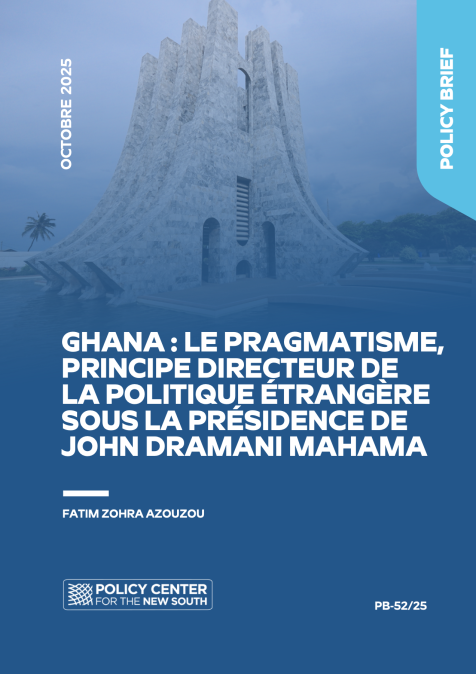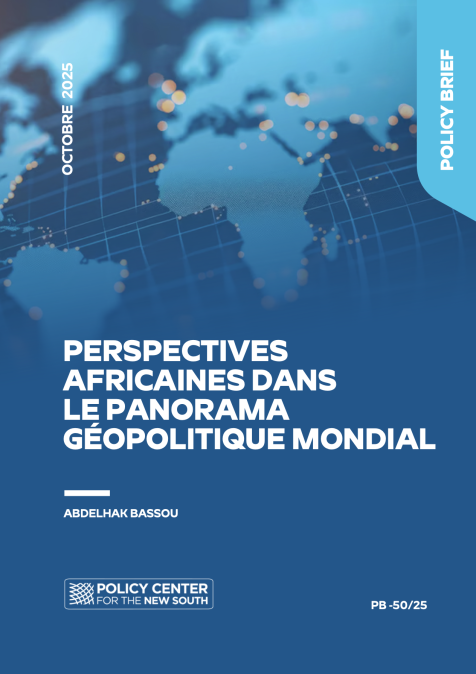في هذه الحلقة نسلط الضوء على علاقة الشباب المغربي بالموروث الثقافي، بين من يعتبره مصدر إلهام ومن يراه عبئاً يعيق التعبير الحر عن الذات. نناقش مدى قدرة الثقافة السائدة على مواكبة تطلعات الأجيال الجديدة، في ظل اتساع الفجوة بين المؤسسات التقليدية ووسائط التعبير الحديثة التي باتت تتيح فضاءات بديلة أكثر تحرراً. كما نتوقف عند الطموحات الثقافية للشباب واختلافها عن تصورات الأجيال السابقة، ونتساءل عن دور الدولة والمجتمع في بلورة سياسات ثقافية تستجيب لهذه التحولات دون التفريط في الهوية.
RELATED CONTENT
-
November 4, 2025في هذه الحلقة، نناقش مستجدّات قانون المالية لسنة 2026، بما يشمل الإصلاحات الضريبية والتعديلات على الضرائب المباشرة وغير المباشرة، سياسات الإنفاق العمومي الجديدة، التحفيزات الاقتصادية للاستثمار والابتكار، والتدابير الاجتماعية لدعم الفئات الهشة، مع إبراز التحديات والآفاق المستقبلية للاقتص...
-
 Authorsavec le concours de Sâ Benjamin TraoréOctober 31, 2025Ce rapport a été initialement publié sur fondapol.org Depuis 50 ans, le conflit du Sahara occidental est pendant devant les instances internationales.En 1975, le Maroc a fait acte de souveraineté sur ce vaste territoire désertique, jusque-là colonie espagnole. Il estime qu’il lui avait antérieurement appartenu. Ce point de vue est contesté par le Front Polisario, mouvement indépendantiste soutenu par l’Algérie. La communauté internationale a adopté une attitude ambivalente, ret ...
Authorsavec le concours de Sâ Benjamin TraoréOctober 31, 2025Ce rapport a été initialement publié sur fondapol.org Depuis 50 ans, le conflit du Sahara occidental est pendant devant les instances internationales.En 1975, le Maroc a fait acte de souveraineté sur ce vaste territoire désertique, jusque-là colonie espagnole. Il estime qu’il lui avait antérieurement appartenu. Ce point de vue est contesté par le Front Polisario, mouvement indépendantiste soutenu par l’Algérie. La communauté internationale a adopté une attitude ambivalente, ret ... -
L’avenir se décide aujourd’hui : pour une stratégie marocaine des minerais critiques et stratégiquesAuthorsOctober 31, 2025Le secteur minier traverse une période critique où convergent transition énergétique mondiale, recompositions des chaînes d'approvisionnement et ambitions nationales d'industrialisation. Le Maroc, pays doté d'un patrimoine minier diversifié incluant phosphate, cobalt, cuivre et autres minerais critiques, dispose d'un réel potentiel pour s'imposer comme acteur incontournable de la transition énergétique.Toutefois, l'absence de stratégie nationale dédiée, le manque de coordination int ...
-
AuthorsFatim Zohra AzouzouOctober 29, 2025Ghana’s President John Dramani Mahama has made pragmatism the orienting principle of his foreign policy to reach a dual goal: (a) economic recovery, and (b) containment of the terrorist threat. Two recalibrations illustrate this shift. First, strategic convergence with Morocco: on January 7, 2025, Accra suspended recognition of the so-called ‘Sahraoui Arabe Democratic Republic’ and endorsed Morocco’s Autonomy Plan for the Moroccan Sahara. This opened the door to expanded economic co ...
-
Alae Jellal, Francis PerrinOctober 29, 2025Dans ce podcast, notre Senior Fellow Francis Perrin souligne que l’Afrique reste très dépendante des énergies fossiles : malgré 20 % de la population mondiale, elle ne consomme que 3,5 % ...
-
AuthorsFatim Zohra AzouzouOctober 29, 2025Le Président ghanéen Dramani Mahama fait du pragmatisme le principe directeur de la politique étrangère de son pays pour répondre à un double impératif : redressement économique et endiguement de la menace terroriste. Deux recalibrages en constituent les preuves empiriques. D’abord, la convergence stratégique avec le Maroc : le 7 janvier 2025, Accra suspend sa reconnaissance de la pseudo-« rasd » et endosse le Plan d’autonomie marocain, ouvrant la porte à de nouvelles pistes de coop ...
-
October 28, 2025حلقة هذا الأسبوع تسلط الضوء على العلاقة بين المغرب والجزائر . نتوقف عند جذور الخلافات وتطور النظام الجزائري، ونناقش كيف تؤثر التحولات الإقليمية والدولية على مسار العلاقات بين البلدين، مع تساؤلٍ حول فرص التعاون وإمكان إحياء مشروع اتحاد المغرب العربي ...
-
Oumaïma El Azami El Hassani, Georg CharpentierOctober 24, 2025Georg Charpentier, Senior Advisor at CMI Martti Ahtisaari Centershares insights on the dynamics of United Nations peace operations and regional stability. He underscores the importance of ...
-
AuthorsOctober 24, 2025Le panorama géopolitique mondial expose, certes, cruellement les vulnérabilités structurelles de l'Afrique (dépendance alimentaire, financière, exposition aux chocs), mais il ouvre aussi une fenêtre d'opportunités sans précédent depuis les indépendances. Le continent n'est plus seulement un objet de la géopolitique mondiale ; il tend de plus en plus à jouer un rôle d’acteur qui dispose d'une marge de manœuvre accrue. Le défi pour le continent et ses Éta ...
-
October 23, 2025Depuis 2016, le Policy Center for the New South et le Centre de Géopolitique de l’école HEC Paris organisent chaque année deux éditions des « Dialogues Stratégiques ». Cette plateforme d’analyse et d’échange réunit des experts, des chercheurs provenant de différents think-tanks et du mo...






